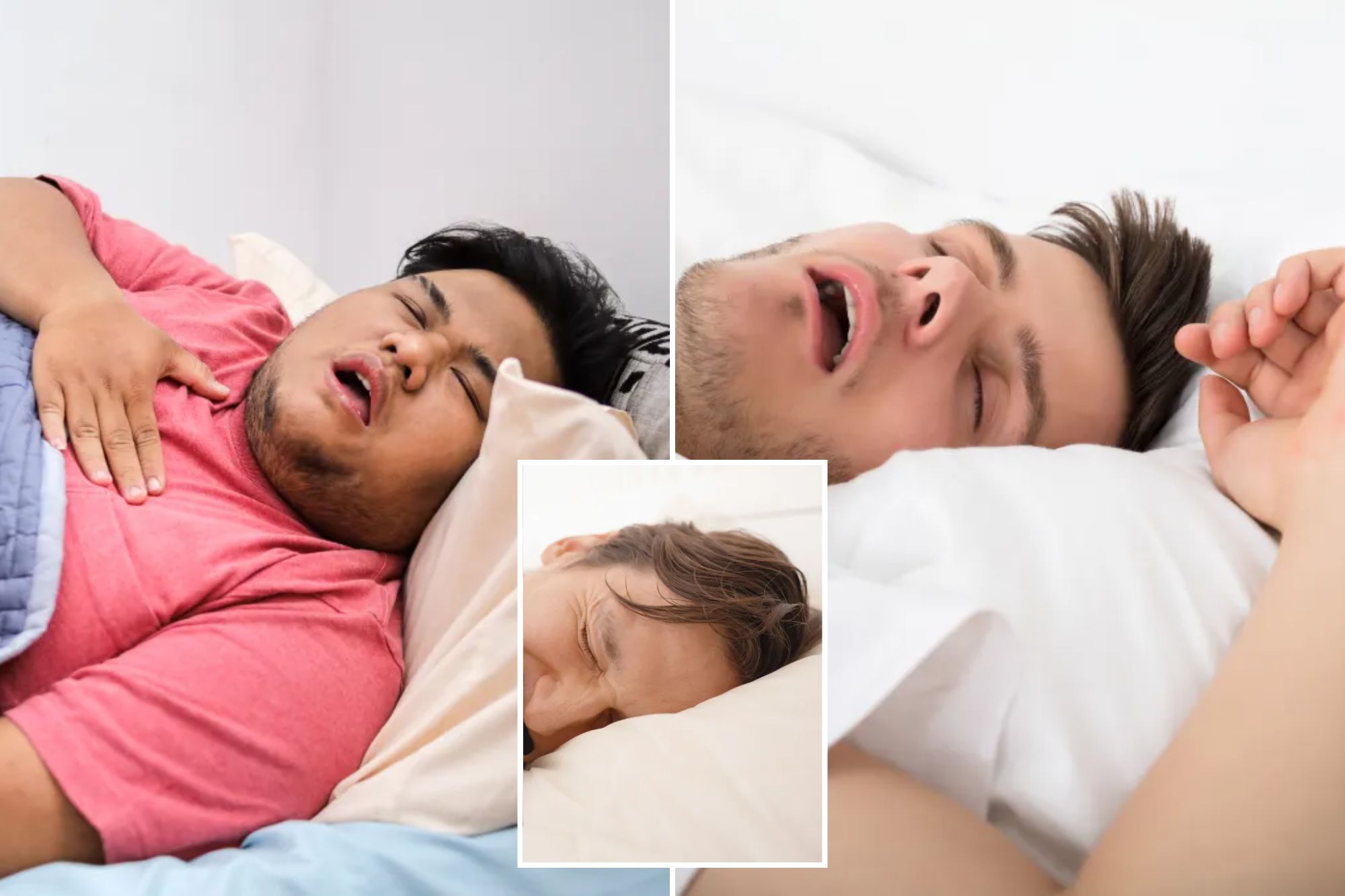Dr. Brian Rotenberg does not keep his lips sealed on this fashion hack.
“The general concept of the mouth, from a scientific and biological perspective, does not make much sense,” he told The Post the Canadian ear, the nose and the throat.
Rotenberg recently delved into the science behind Tiktok’s famous fashion, and let’s say the results were not exactly dreamed. Most of the research showed little or no real benefit, and some studies even raised red flags on the potential for “serious health damage”.
What is the recording of the mouth?
It is a viral tendency where people close their lips before sleeping to cheer their nose breathing instead of their mouths while sleeping.
Supporters say a range of benefits, such as a better sleep, a small snoring, cooler morning breathing, improved oral health and even a more defined line of jaw.
Gwyneth Paltrow, Ashley Graham and Jimmy Fallon are some of the celebrities who have gone up on the train train. And the influential of health and well -being like Cory Rodriguez and James Jun have accumulated millions of views of tactics.
“I have been doing it for a couple of months after seeing it and changing life. The best sleep of my life,” said a social media user.
“Sleep much better, diminished snoring, no dry mouth,” he did another.
But not everyone sells the idea. Skeptics have raised their concern for potential risks, commenting on things like: “I would quench” or “would probably die in the middle of the night.”
They may not be completely out of base, at least in some cases.
When the mouth becomes a nightmare
Roncs is often related to an obstructive sleep apnea, which affects around 30 million Americans. It causes the upper respiratory tract to collapse or crush, interrupting your breath at night.
In a deep immersion of 10 studies with 213 patients, Rotenberg and his colleagues found that only two studies showed that the mouth recording can slightly help those with light sleep apnea.
The other eight showed no real benefit for the breathing of the mouth, the sleeping breathing of sleep or sleep apnea.
Even worse, four of the studies raised a severe red flag: the potential for suffocation, especially for those that oral breathing is caused by nasal blockages.
This is why: The sleep apnea causes the upper respiratory tract to collapse, forcing many to breathe through the mouth at night. But if the nose is blocked and your mouth closes your mouth, “there is nothing left to breathe at the time,” Rotenberg warned. “This is where the risk comes.”
Rotenberg does not believe that the mouth paste would be fatal if you had blocked nasal passages, as the body would probably wake you up before things were too far.
However, he has had patients who have fought with their mouths and, for some, actually worsened their apnea.
“You can imagine if the trend continued and you do not remove the mouth of the mouth; at this time there would be a real risk of something terrible,” said Rotenberg, a Western University professor in Ontario.
Hate fever, chronic rhinitis, a diverted septum, synasal disease or enlarged tonsils are among the conditions that could cause the mouth to entangle the dangerous mouth by blocking the flow of air through the nose.
“These conditions will not be treated by mouth recorded because they are mechanical things on the airway,” said Rotenberg.
“The best thing to do is to go to your qualified healthcare professional, your family doctor, your nurse practicing and ask them to really investigate what’s going on,” he added. “Don’t take the advice of a social media or celebrity influencer you like.”
Real solutions for a better sleep
If you want to leave your breath of snoring or tame your breath, Rotenberg suggests several strategies.
First up: If you bring an additional weight, you can help shoot a few kilos. He also recommends cutting alcohol and avoiding heavy meals before sleeping.
For those who need more help, there are devices such as CPAP or APAP, which provide air directly to the lungs to maintain open airways and soft breathing at night.
Oral appliances, think of them as oral protections, can sometimes help reposition the jaw or tongue to maintain clear respiratory tract and reduce the symptoms of sleep apnea.
And if you are really in a pinch, there is always a surgery, which Rotenberg says it is safe, effective and can offer a long term success.
“People could say,” Wait a second, surgery or a recorded mouth? Why would I not fix my mouth? “Because it will not treat your apnea, and it can get worse,” said Rotenberg.
That said, there are real benefits to breathing through the nose, such as heating the air before the lungs are sinking, reducing irritation and filtering dust, allergens and other particles in the air.
“I think nasal breathing is a good goal and if the influential or celebrities believe that it is, more power for them,” he said. “Where we differentiate ourselves is how to achieve this goal.”
In the face, Rotenberg hopes to launch an international study to see if the mouth recording can help the proper group of patients, such as those who do not have sleep apnea or nostrils.
“This would be a difficult judgment to organize, but that would be aspirational,” he said.
#careful #popular #sleep #tendency #harm #health
Image Source : nypost.com
